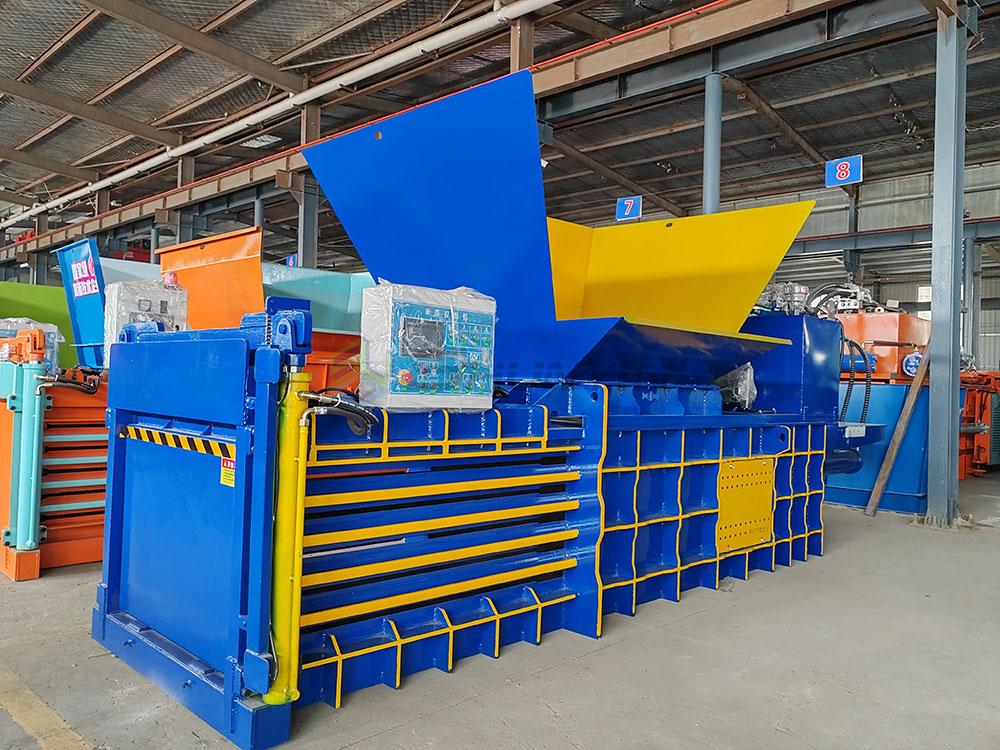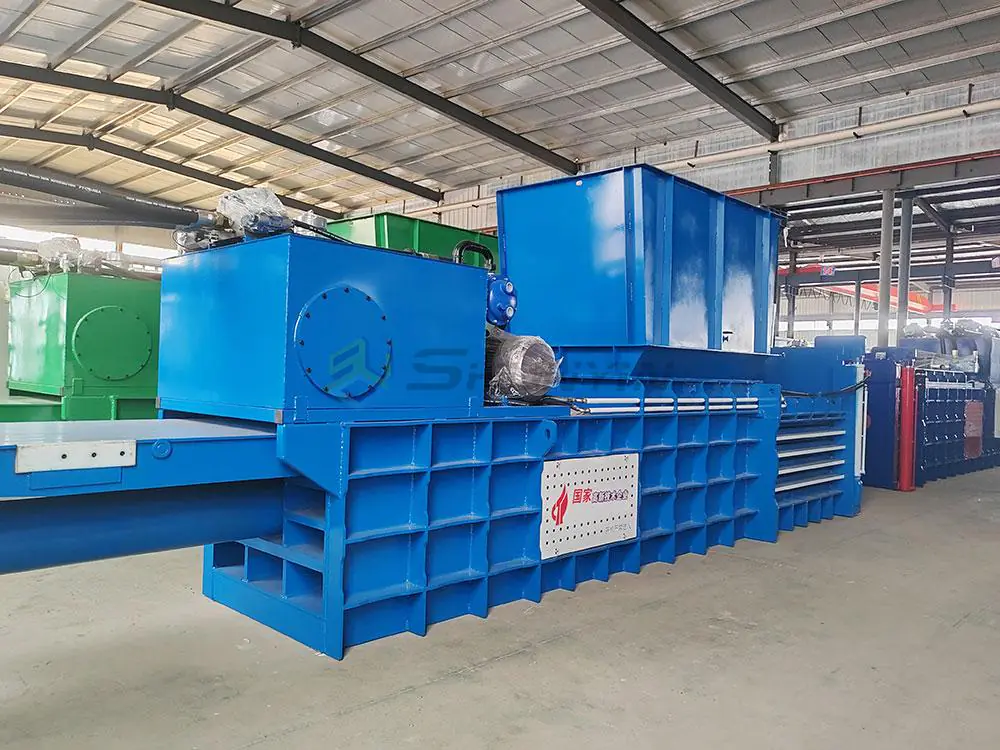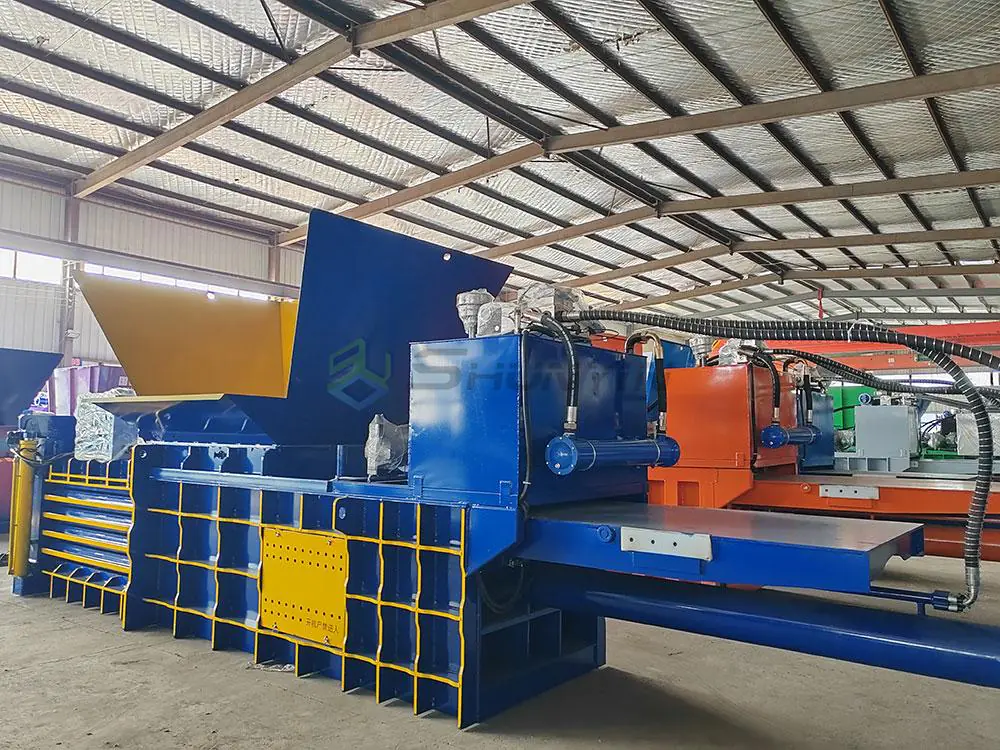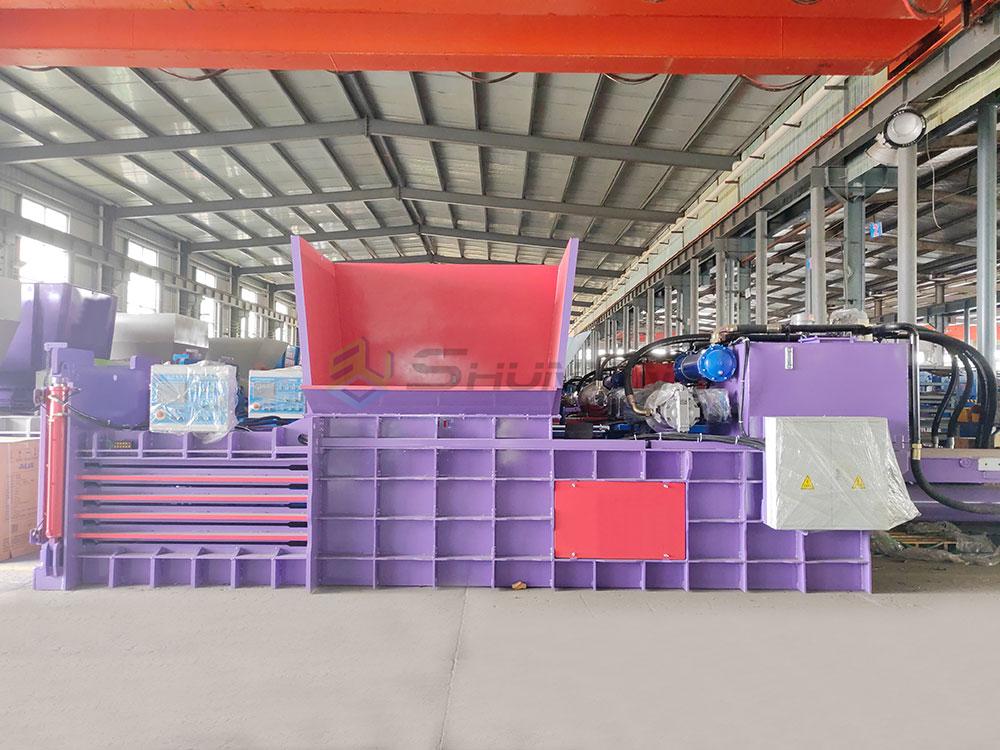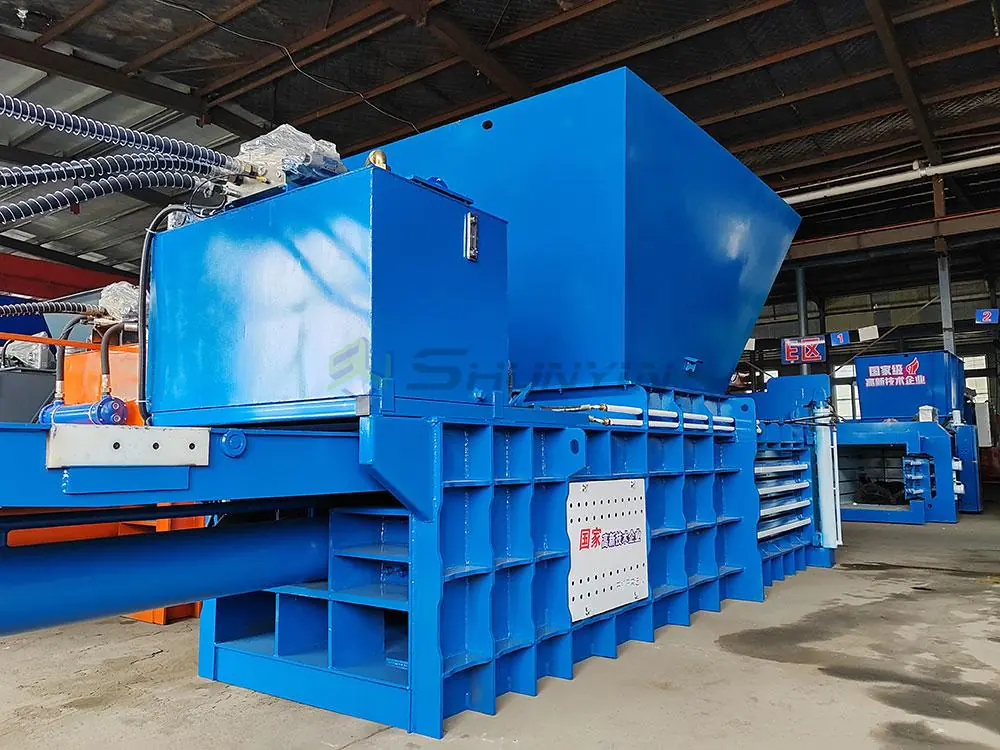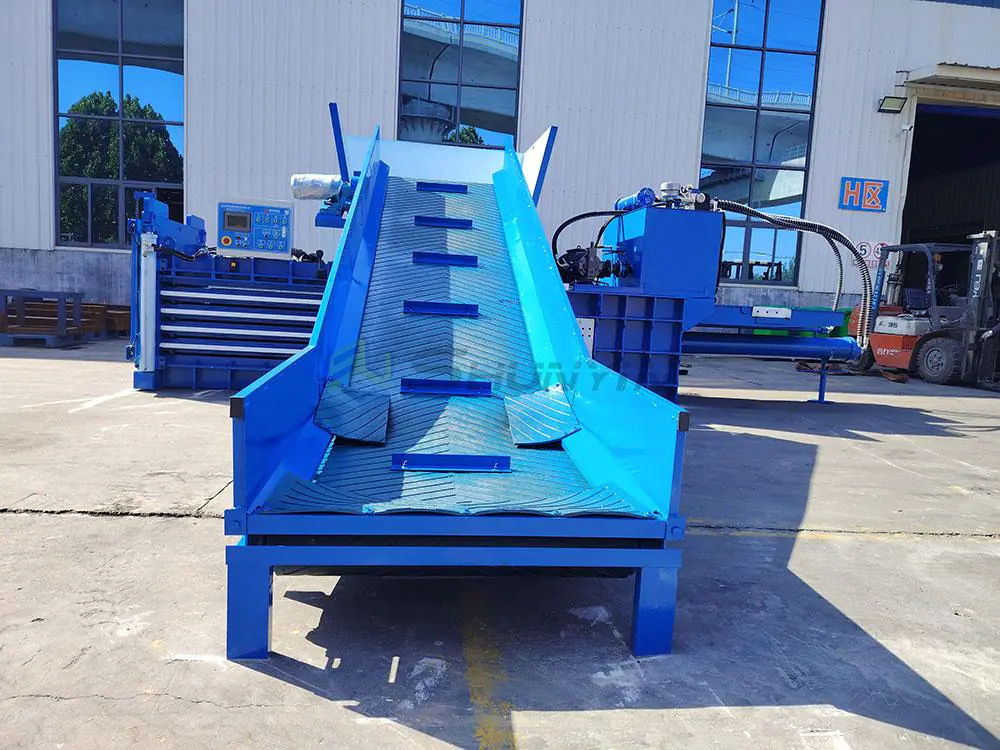
When Toronto’s GreenCycle facility processed 28% more material after switching to horizontal balers, their secret weapon wasn’t size – it was the X90 continuous feeding system. Round-the-clock operations demand specific engineering solutions.
Horizontal hydraulic balers dominate large facilities through 3 advantages: 1) 400-900 tons/day throughput capacity 2) Automatic ram reverse reduces cycle time to 13-22 seconds 3) 8× denser bales than vertical models via 3-stage compression. The TDS-800 model maintains 92% uptime even at 23 tons/hour output.
Let’s analyze the technical and economic drivers behind this industrial preference.
What Is the Difference Between Vertical and Horizontal Balers?
A Los Angeles MRF cut labor costs by $114k annually replacing 17 vertical units with 4 horizontal balers. Compare critical performance gaps.
Operational Comparison (3-shift basis):
| Parameter | Vertical Baler | Horizontal Baler | Delta |
|---|---|---|---|
| Throughput (tons/hr) | 0.8-1.2 | 18-28 | 23× |
| Energy Use (kWh/ton) | 9.4 | 5.1 | -46% |
| Bale Density (kg/m³) | 160-240 | 580-680 | 3.8× |
| Labor (mins/ton) | 14 | 1.7 | -88% |

Cost Per Ton Breakdown
Hidden Costs Exposed:
| Cost Element | Vertical ($/ton) | Horizontal ($/ton) |
|---|---|---|
| Knife Sharpening | 0.82 | 0.07 |
| Ram Seal Replacement | 1.14 | 0.23 |
| Wire Consumption | 0.48 | 0.15 |
Boston Recycling Case:
Horizontal systems saved $19.80/ton through:
- Automatic lube systems cutting seal wear
- Programmable pressure curves extending blade life
- Continuous feed eliminating manual stacking
How Does a Horizontal Baler Work?
Düsseldorf’s ZAK plant upgraded to AI-controlled hydraulic balers achieving 28 tons/hr OCC processing. Understand modern workflows.
Smart Baling Sequence:
-
Auto-Feed Optimization
LiDAR scans load height, adjusts conveyor to 23-42 m/min speed -
Intelligent Pre-Crush
300-500 kN pre-pressure removes air pockets -
Main Compression
Up to 14 MPa (2,030 PSI) in 3-phase loading -
Auto-Tie & Eject
Double-loop wiring with tension feedback (450-680N)

Hydraulic System Specs
Force Generation Details:
- Pump: Axial piston 160 cm³/rev @ 180 bar
- Ram Speed: 120-180 mm/sec extension
- Oil Cooling: Plate heat exchanger maintains 50-55°C
Seoul Waste Plant Data:
- 800 tons/day capacity
- 18 hours continuous operation
- Oil change interval: 8,100 cycles (vs standard 5,200)
What Is a Baler in Waste Management?
Milwaukee’s facility integrated balers with RFID tracking, boosting traceability to 97.6%. Beyond compaction – modern roles.
Smart Baler Functions:
| Technology | Function | Impact |
|---|---|---|
| NIR Sensors | Material Identification | 89% purity rate |
| Strain Gauges | Density Verification | $9-14/ton value gain |
| IoT Gateways | Predictive Maintenance | 38% downtime reduction |

Data-Driven Waste Stream Management
Key Metrics Tracked:
- Compression force variance (≤8%)
- Contamination alerts (metal/plastic)
- Bale ID: Time/Pos./Operator
Chicago MRF Results:
- 22% higher resale value through certified bales
- 14% insurance premium reduction via traceability
How Does a Hydraulic Baler Work?
A Zhejiang manufacturer doubled cylinder lifespan using Bosch servo valves. Explore component-level engineering.
Hydraulic Circuit Breakdown:
| Component | Function | Tech Specs |
|---|---|---|
| Main Pump | Pressure Generation | 160L/min @ 210 bar |
| Proportional Valve | Force Control | 0-10V DC control signal |
| Accumulator | Energy Storage | 15L bladder @ 200 bar |
| Heat Exchanger | Temperature Control | 50,000 kcal/h capacity |

Maintenance Optimization
| Critical Checks Schedule: | Interval | Task | Tolerance |
|---|---|---|---|
| Every 500hrs | Pump Case Drain Flow | ≤6L/min | |
| 3,000hrs | Cylinder Rod Runout | <0.15mm | |
| 10,000hrs | Valve Spool Clearance | 5-12µm |
Berlin Facility Protocol:
Vibration analysis detects 73% of failures 200-400hrs before breakdown
Conclusion
Large operations choose horizontal balers for their industrial DNA: 1) High-density bales reduce transport costs by 42% 2) 24/7 AutoCycle™ operation requires minimal staff 3) Intelligent hydraulics adapt to material variations. For max efficiency:
- Select models with 250+ ton clamping force
- Demand SAE J1171 compliant hydraulic specs
- Require closed-loop pressure control (±1.5%)
- Optional: Integrated bale weight scales (0.5% accuracy)


